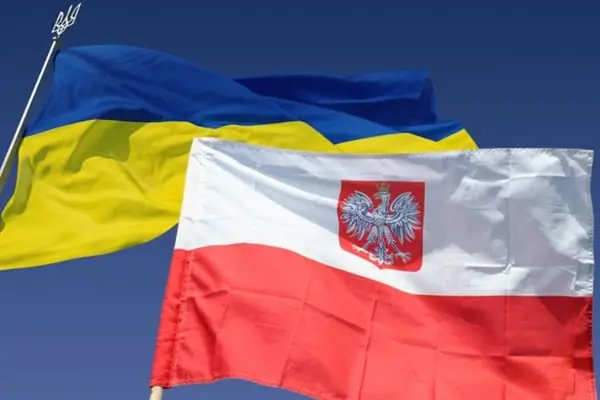Alternative reality: what would Ukraine look like with these laws?

The history of an alternative Ukraine: what would have happened if these laws had been adopted
Ukrainian society often faces a lack of transparency in the activities of government agencies, which leads to an incomplete understanding of many important processes. Recent events, such as changes in the senior military leadership and investigations into possible financial irregularities, have raised numerous questions that are not always clearly answered. Different state bodies and political figures sometimes give contradictory comments on these situations, which further complicates the public's understanding of events.
Today, however, we will focus on another important topic: draft laws that had the potential to significantly affect Ukraine's development but were not adopted for various reasons. Let's take a look at these legislative initiatives and think about how they could have changed the course of our country.
Draft Law “On the Principles of Domestic and Foreign Policy” of 2010
In 2010, the Verkhovna Rada of Ukraine was considering a draft law “On the Principles of Domestic and Foreign Policy” that would have enshrined Ukraine's non-aligned status. This law was supposed to define the key directions of the country's foreign policy for the coming years.
Advantages of the draft law:
- Neutrality in international conflicts: Ukraine could avoid being drawn into confrontations between different military and political blocs, and thus would be “unprofitable” for other countries as a worthy player on the battlefield.
- Improvement of relations with russia: of course, the adoption of this law contributed to the improvement of relations with russia.
Disadvantages of the draft law:
- Limitation of defense capabilities: Ukraine has lost the prospect of receiving security guarantees from NATO. It also lost invaluable time to prepare to meet the Alliance's high standards, which would have changed the current state of the country and possibly prevented a full-scale war.
- Risk of international isolation: non-aligned status has complicated Ukraine's integration into European and Euro-Atlantic structures.
- Vulnerability to external threats: without the support of powerful allies, Ukraine has become more vulnerable to external pressure, including that of russia.
In fact, this bill was adopted on July 1, 2010. Its support was associated with the coming to power of Viktor Yanukovych, who was a puppet in the hands of a stronger state and had no control over the situation in Ukraine. The law was criticized by the opposition and a large part of society, which wanted to get out of isolation and become part of the civilized world. Relations with Western partners deteriorated, making Ukraine look like an unreliable ally.
After the Revolution of Dignity in 2014, the law was nevertheless repealed, and the course towards European integration was restored. However, it has already borne fruit and caused civilian casualties, the flight of Viktor Yanukovych, and all the difficulties we are overcoming on our way to joining both the EU and NATO.
Draft law on the special status of Crimea (1992–1993)
The draft law was intended to give Crimea greater autonomy in decision-making, but without compromising its economic and cultural ties with the mainland of Ukraine. The peninsula was also supposed to have rights regarding language and cultural policy with its own specifics. If the law had been passed, the consequences would have been as follows:
- Reducing separatist sentiment: granting broad autonomy could satisfy Crimeans' desire for self-government.
- Preservation of territorial integrity: a clearly defined special status could prevent future territorial claims.
- Protection of minority rights: the law could guarantee the rights of different ethnic groups in Crimea.
- Economic development: special status could contribute to the economic development of the region.
Disadvantages of the draft law:
- The risk of further secession: broad autonomy could be the first step toward complete separation of Crimea.
- Complexity of governance: special status could complicate the process of governing the state.
- A precedent for other regions: other regions of Ukraine could also demand special status.
- Possible conflicts with the central government: division of powers could lead to conflicts between Crimea and Kyiv.
For all of the above reasons, the law was not adopted. Most members of the Verkhovna Rada believed that the law would strengthen separatist sentiments, not only in Crimea. In addition, different political forces had different visions of the status of the peninsula. So we had to face reality. The lack of a clear status was not the only reason for the annexation of Crimea in 2014. Discussions among the authorities about Crimea continued for many years, but there were no changes. It is impossible to say for sure whether this law would have prevented the events of 2014, but it could have brought more stability and certainty to the relations between Kyiv and Crimea. This case demonstrates how important timely legislative decisions can be in politics and law.
Draft law on the state language (1990s)
At the dawn of Ukraine's independence, the language issue became one of the key challenges for the young state. In the 1990s, the Verkhovna Rada was considering an ambitious draft law on the state language that could have had a significant impact on the language situation in the country. This document provoked heated debate and was ultimately not adopted, which had far-reaching consequences for the development of the Ukrainian language and society as a whole.
The bill proposed to recognize Ukrainian as the only state language. Ukrainian was to be mandatory in public institutions. It was also planned to expand the scope of the Ukrainian language in the world and the media.
Advantages of the draft law:
- Strengthening national identity: the law could help consolidate the Ukrainian nation.
- Accelerating Ukrainization: faster spread of the Ukrainian language in all spheres of life.
- Clear rules: establishing unified language standards for the whole country.
- Development of Ukrainian culture: stimulating the development of Ukrainian-language literature, cinema, and music.
But the disadvantages were quite significant:
- Potential conflicts: possible aggravation of the language issue in regions with a predominantly russian-speaking population.
- Economic costs: the need for significant resources to implement the law.
- International reaction: possible criticism from neighboring countries, especially russia.
- Difficulties of the transition period: the need for time to adapt the population and institutions to new requirements.
But again, there was no consensus among the political elite. MPs feared that relations with russia would deteriorate significantly. Different regions of Ukraine had their own “traditional” manner of communication and language. The famous “Kharkiv” is a good example. This could have led to increased tension in society and possible separation at a time when Ukraine was not strong enough to confront and resolve such issues.
So the bill was rejected or postponed until better times. Although it is already clear that everything that was supposed to happen has happened. And the law on language was adopted, but in the recent 2019.
Draft law on lustration (2005)
In 2005, Ukrainian politicians proposed a lustration law. This meant that they wanted to “cleanse” the government of people who were associated with the communist past or involved in corruption. After the Orange Revolution, this was an absolutely adequate bill that would certainly increase public confidence in the ruling elite. Adoption of the draft law could have facilitated the emergence of new personnel with fresh ideas and views in the government. The absence of corrupt officials and supporters of the old regimes would cause greater favorability to the government. It would also help in international relations, as change is a decisive step. However, the best thing this law would do is to say goodbye, albeit not quickly, to the Soviet past and look forward to a European future.
It is also worth noting that this law also contained ambiguous problems:
- Loss of experienced employees: along with bad officials, good, experienced specialists could be fired.
- Possibility of revenge against competitors: politicians could use this law to get rid of their opponents.
- Difficult to determine who should be lustrated: it would be difficult to clearly define who exactly falls under the law.
As a result, the law was not adopted. Politicians could not agree, and the large number of details, consequences, and reasons led to a flurry of criticism of the law at the draft stage. The distrust of each other among officials resulted in the fact that everyone was afraid of being subject to this law. So it's scary to think about the kind of government that was in place in Ukraine at the time, and I want to believe that it has changed at least a little. And Ukrainians, who were accustomed to the old standards and procedures, and who had little or no understanding of lawmaking, law, and politics, did not actively support the adoption of this law.
So everything remained in place: old politicians, corruption, and oligarchy. The state practically stood still without new reforms and political changes. Any innovations were treated like a “horror movie”. Theft of money and money laundering schemes continued to gain momentum. People treated politicians as a mafia that sought only to enrich themselves and profit and nothing else. And Ukraine again lost time for renewal, progress and integration into the civilized world.
Interestingly, a similar law was passed, but only nine years later, in 2014, after the Revolution of Dignity. It was called “On the Purification of Government” and partially fulfilled what was planned to be done back in 2005.
Law on the Land Market in Ukraine (until 2021)
The law on the land market, or agricultural land turnover, has long been one of the most controversial in Ukraine. Until 2021, the country had a moratorium on the sale of agricultural land.
The adoption of this law could lead to significant investment in the agricultural sector and, as a result, economic growth. Also, given the situation in rural areas and the extinction of many Ukrainian villages because no one cares about them, this law could bring funds to rural communities.
Instead, you should also consider the risks:
- Land concentration: fears that large companies and oligarchs will buy up most of the land.
- Foreign ownership: fear that foreigners will buy up Ukrainian land en masse.
- Speculation: risk of rapid growth in land prices and speculative transactions.
- Social tension: possible increase in inequality between rich landowners and poor peasants.
By 2020, the law had not been adopted, which allowed the shadow land market to continue to operate. That is, the “schemes” were improved, expanded, and doubled. Corruption flourished and progressed. In our agrarian country, our agricultural sector did not receive enough investment and support, which was a necessary component of the country's economic stability.
Finally, the land market law was adopted in 2020 and came into force on July 1, 2021. It provides for the gradual opening of the market with certain restrictions. This was an important step for Ukraine, although discussions on the details of the land market are still ongoing.
Analyzing all of the above, we can conclude that for some reason, in our country, decisions are made in such a way that all MPs are satisfied with everything and have no problems. The needs of the population are taken into account only occasionally and selectively. Distrust of each other and the lack of collective decision-making flourish in the ruling elite. Everyone sees enemies everywhere and tries to “strike first.” Ukrainians, on the other hand, have virtually no influence on decision-making in the Verkhovna Rada and remain on the sidelines. The country needs significant changes that could overcome corruption, nepotism, and all the problems that have plagued us since 1991.











